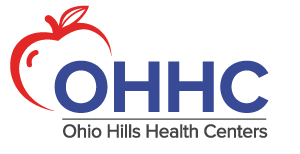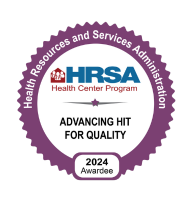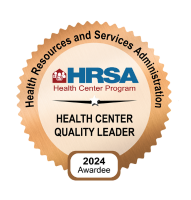Dr. Russell Lee-Wood Provides Medication Assisted Treatment
Posted 07/10/19Opioid addiction rates are at all-time high. Today, more people die of drug overdoses than any other form of accidental death, and opioid overdose rates surpass historic peak death rates from human immunodeficiency virus (HIV), gun violence, and motor vehicle accidents.
Dr. Russell Lee-Wood, Family Practice Physician, has been offering a Medication Assisted Treatment (MAT) program through Ohio Hills Health Services for the past 13 years and has treated over 400 patients for addiction. MAT is the use of medications along with counseling and behavioral therapies to treat substance use disorders and prevent opioid overdose.
“Unfortunately, most people cannot just walk away from opioid addiction,” said Dr. Russell Lee-Wood. “Addiction is a medical disease, not a moral failure. People need help to fight their addiction. The proper use of medications can suppress withdrawal symptoms and the cravings for opioids.”
Quitting “cold turkey” has a poor success rate. Treatment outcomes for behavioral interventions alone for opioid use disorder are dismal with more than 90% of patients returning to drug use. In contrast treatment with MAT, when adequately dosed, results in retention rates of 60% to 80% with only 15% of those treated continuing to use illicit opioids. MAT options like methadone, naltrexone, and Suboxone help patients to stay sober and help to reduce the side effects of withdrawal and work to curb cravings which can lead to relapse.
Dr. Lee-Wood conducts a thorough assessment of potential patients who are seeking assistance for their addiction and if he determines MAT is the most appropriate course of treatment, he will prescribe Buprenorphine, commonly known as Suboxone. Patients are carefully monitored throughout their treatment. Patients also receive referrals for counseling or behavioral therapy where they can learn coping techniques to remain drug free and also address underlying conditions which contribute to their drug use such as anxiety, trauma or depression.
“It is a misconception that people travel from out of the area to receive MAT,” said Dr. Lee-Wood. “The majority of my patients are local residents and many of them do not fit the community’s stereotype of a drug addict. I treat many hard working, community individuals such as the coal miner who was injured on the job and became addicted to the opiates he was prescribed to control his pain. I have also had the privilege to treat professionals such as attorneys and accountants. Drug addiction impacts all walks of life.”
The ultimate goal of Medication Assisted Treatment is full recovery. This treatment approach has been shown to: improve patient survival, increase retention in treatment, decrease illicit opiate use and other criminal activity among people with substance use disorders, increase patients’ ability to gain and maintain employment, and improve birth outcomes among women who have substance use disorders and are pregnant. (SAMHSA)
Once a patient is doing well on a steady dose of buprenorphine a medically supervised withdrawal is considered. People then can engage in further rehabilitation—with or without MAT—to prevent a possible relapse.
“It has been a huge honor for me to be a part of my patients lives. I have seen firsthand their struggles and what it takes for them to overcome addiction,” said Dr. Lee-Wood. “People often have negative stereotypes of those who are battling addiction, but believe me these individuals are our neighbors, our friends and our co-workers and they need our support.”
Buprenorphine-naloxone remains an underutilized treatment for opioid addiction despite its effectiveness, safety, and relative ease of use. Medications such as buprenorphine, in combination with counseling and behavioral therapies, provide a whole-patient approach to the treatment of opioid dependency.



